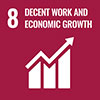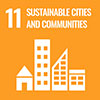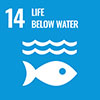coordinated by Francesc González and Soledad MoralesISSUE 7 (MAY 2017)
Our world is finite, and so is tourism – from tourism multipliers to redistributive conflict
The assumption that tourism growth can be sustainable is widespread in certain academic sectors and public institutions. It is an assumption that is partly founded on the Tourist Multiplier theory, proposed by Archer and Owen in the early 1970s. However, this premise is coming up against an increasingly urgent reality: the finite nature of our planet and its resources. Economic development has natural limits. The article presents a conflictivist view of tourism development that is more in line with this reality: The emergence of new economic activity – or its growth – forces us to restructure our use of the available resources. These resources cannot always be multiplied. And as part of this process, some will lose and others will win.
ODS




 Jordi Gascón
Jordi GascónDoctorate in Social Anthropology from the University of Barcelona with a specialization in rural studies. His fields of study are the impacts of tourism on rural communities, tourism as an instrument in development cooperation, and agricultural policies in Latin America. He has been performing research into the Andes area since 1990. A member of the teaching staff at both the University of Barcelona and the Universitat Oberta de Catalunya (UOC), he is also a member of the Foro de Turismo Responsable (Responsible Tourism Forum) platform.
 Ernest Cañada
Ernest CañadaMaster's degree in Contemporary History from the Pompeu Fabra University. Coordinator of Alba Sud and member of the Foro de Turismo Responsable (Responsible Tourism Forum) platform. Between 2004 and 2014 he lived in Nicaragua, which was the base for his work in Central America, Mexico and the Caribbean. His research focuses on community tourism, conflictivity in tourism and working conditions in the sector.



